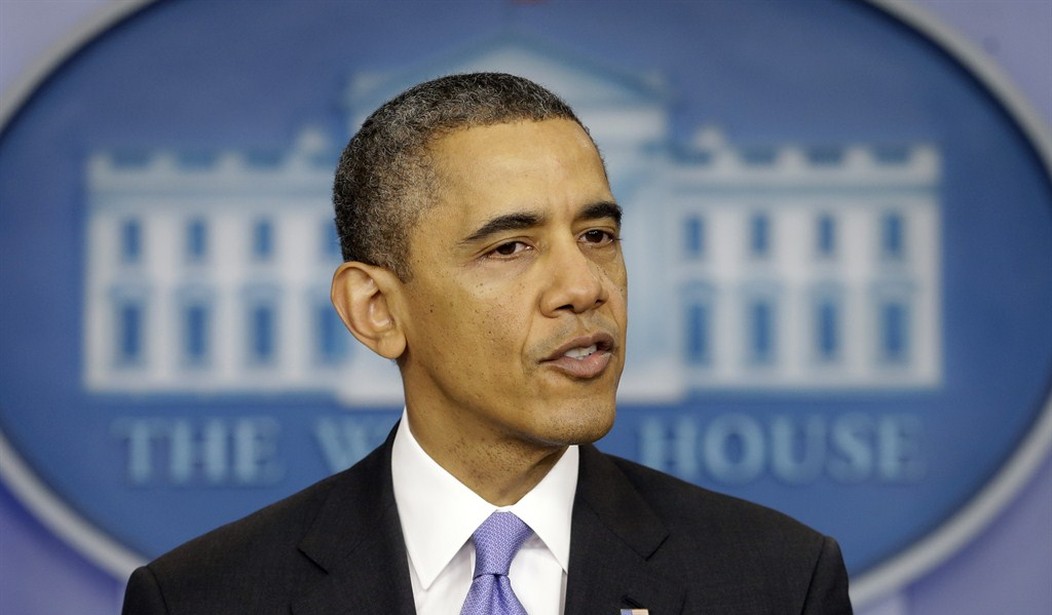WASHINGTON - In the sixth year of his presidency, with his job approval polls in a nose dive, Barack Obama has suddenly decided to do something about growing poverty.
He chose to do it on the 50th anniversary of President Lyndon Johnson's "war on poverty" address that led to a massive expansion of the welfare state. Actually, LBJ's Great Society spending binge turned out to be a failure on many fronts, but more on that later.
When Obama took office in 2009 in the midst of a deep recession, it was obvious that poverty was a very serious problem. Unemployment was speeding toward 10 percent, poverty rates were climbing, homelessness was soaring, and an increasing number of families didn't have enough to eat.
He looked for answers to all of this in the past, way into the past, as in Great Depression. Like FDR, he hoped by spending hundreds of billions of dollars on "shovel-ready" infrastructure jobs, he could jump start the economy.
But, while FDR's programs gave people hope, they did not end the depression which lasted a full decade until we entered World War II when the economy was put on a war footing.
Obama's policies didn't work, either, and the economy drifted through the next five years, posting still stubbornly high poverty rates and a shrinking labor force as millions of discouraged, jobless Americans stopped looking for work.
Long-term jobless Americans, who were out of work for 27 weeks or more now make up nearly 40 percent of all unemployed workers.
So on Thursday, Obama unveiled a new program aimed at "income inequality" -- the White House's latest attempt to do something to help poor and middle income people.
Recommended
Only this time, instead of borrowing from FDR, Obama borrowed from the late, great Jack Kemp, the high-energy champion of tax cuts, entrepreneurial capitalism and other pro-growth ideas to promote economic revitalization and jobs.
One of Kemp's ideas was "Enterprise Zones" to provide tax incentives to businesses, financiers, manufacturers and others to invest in poverty-stricken places like the South Bronx. He sought to turn public housing residents into owners, giving them a stake in their property and improving their communities.
Obama took this idea and renamed it "Promise Zones" He first proposed it in his 2013 State of the Union address, but it went nowhere.
Unlike Kemp, however, who wanted to expand his low tax zones all across the country, the president is starting small.
He wants them in five areas that have been hard-hit by his
recession: San Antonio, Philadelphia, Los Angeles, Southeastern Kentucky and the Choctaw Nation of Oklahoma. Eventually, he hopes to expand the program into 20 regions.
But what Obama is proposing won't work because it is solely dependent on cutting red tape by funneling funds from multiple federal agencies by the same bureaucracies whose existing social welfare programs haven't worked in the first place.
Other ideas are warmed-over proposals Congress has ignored, or ones that have had little impact on the poor or the economy. That's because they are built on tax credits that come with strings attached for hiring new workers and are usually temporary.
Employers hire people when their business is growing, not when they're still struggling to survive. They first need to boost their bottom line and that means cutting their tax rates up front.
Kemp's Enterprise Zones were built on tax cuts and other incentives to draw investment, businesses and jobs into blighted areas.But, sadly, his idea went nowhere in the Democratic Congress where House Speaker Tip O'Neill buried his bill.
About this time, ironically, China's Communist leaders were just beginning to liberalize their economy and had begun to designate major slum-infested cities for special incentives that they called "Enterprise Zones."
When the White House announced Obama would unveil his plan on the anniversary of LBJ's address, the network news media loved the idea.
CBS News did a rosy report on the $30 billion Economic Opportunity Act of 1964, but they left out all of its many failures and scandals.
I dug into its programs in the 1970s, as an investigative reporter for United Press International. What I discovered, with the help of sources within the program, was shocking.
Much of "the government's antipoverty spending went to an industry of consultants, researchers, special interest groups, lobbyists and contractors who have been greedily feeding off the program at the expense of the poor," I wrote at the time.
No one was more critical of the program than liberal Sen.
Abraham Ribicoff of Connecticut who was one of its original and most enthusiastic supporters.
The former secretary of Health, Education and Welfare in the Kennedy administration, who held hearings on the program, said this about LBJ's program in a 1972 book:
"Our antipoverty efforts failed. The philosophy of the 1960s -- to provide a vast array of services to the poor -- much be judged by results. There are 26 million poor Americans -- not because they lack social services, advice and counseling but because they lack money, the great equalizer."
It was the "middlemen -- not the poor," Ribicoff said, who were prospering under the anti-poverty program.
In an interview, years later, Ribicoff said, "It sounded good.
But when you analyzed what's been accomplished, the balance sheet indicates they [the programs] have generally been failures."
Nearly 50 million Americans now live below the nation's official poverty income line. But Obama's latest plan won't even nick this number until our job-challenged economy is putting a lot more people back to work than it is now.

























Join the conversation as a VIP Member